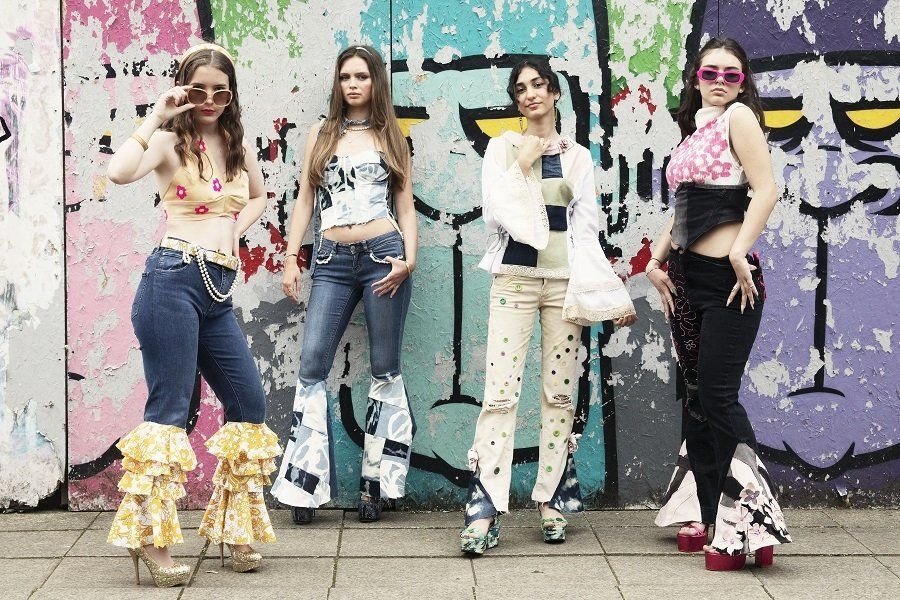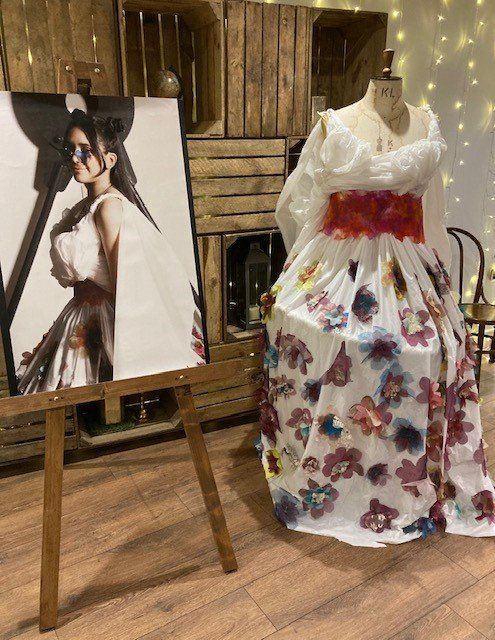Ethical Textiles
In 2020, GTC was awarded funding from the National Lottery Reaching Communities Fund to deliver the community focused Ethical Textiles Project. Here Community Engagement Officer Bev Lamey discusses what is meant by Ethical Textiles; the activities taking place under the programme and the choices that we can all make to help promote an ethical culture of textile production and consumption.
Ethical Textiles is a broad term that could mean different things to different people. This definition of ethical fashion is from the Australian website Ethical Made Easy.
“The general definition of ethical fashion is fashion that aims to reduce the negative impact on people, animals, and the
planet. Producing an item of clothing involves design, labour, and materials. Ethical fashion is kind to the planet and people
every step of the way: from seed to garment.”
https://ethicalmadeeasy.com/what-is-ethical-fashion/
You could swap the word textiles for fashion and that is a good definition of ethical textiles.
Ethical Textiles encompasses all aspects of textiles production, including the working conditions and exploitation of workers, safe and sustainable production and farming practices, the environment, animal welfare and the life of fashion items after we buy them.
Textiles, clothing and fashion are one of the major global industries so each individual consumer can feel hopeless and helpless in the face of the big business that fast fashion has become.
There are things that we can do though. In her book “How to quit Fast Fashion”, Emma Matthews writes about how you can take control as a consumer in order to curb the impact your fashion choices have on the planet and other people and how to embrace slow fashion. She says that
“Slow fashion values the craft that goes into our clothes. It repositions each garment from a throwaway commodity to an
item to be treasured. It takes lessons from before this time of fast fashion and questions whether the convenient choice is
always the best choice.” Matthews, Emma. (2020) How to Quit Fast Fashion. Welbeck, London
Re: Fashion Challenge
Building on the idea that we can take lessons from the past to help us to create a new paradigm of slow fashion, GTC collaborated with the University of Central Lancashire’s Fashion Design team to run the Re: Fashion Challenge for young people in August 2021 and 2022.
The ethos of Gawthorpe Textiles Collection is for the textiles in the collection to be used as teaching aids to teach traditional techniques to the community. It is more important than ever to teach young people the skills to make their own clothes and to remake, alter, improve and refashion the fast fashion items that they buy. Through the Re: Fashion Challenge we have aimed to demonstrate that the “old fashioned” values of thrift and mending can be fun, exciting and can help you to create something unique and special.
Re: Fashion 2022
Re: Fashion 2021
Green Canopy Exhibition
To mark the end of the Ethical Textiles project we brought together the work undertaken by communities over the two year period in an exhibition at Gawthorpe Hall April - July 2022.



















